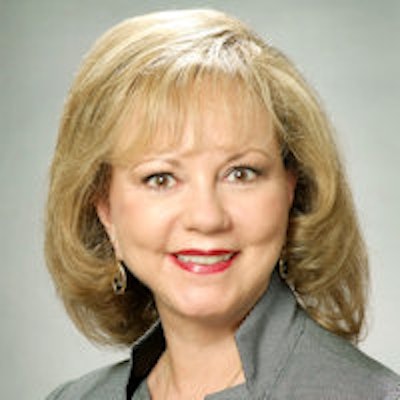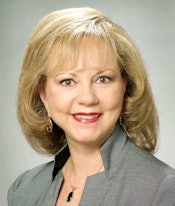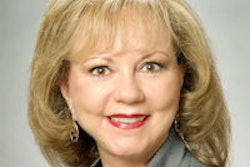
If chaotic days are the norm at your practice, and you feel like you're always running from patient to patient with no break in sight, it might be time for you to slow down and take a good look at what's causing this undue stress in your life: your practice schedule.
 Sally McKenzie, CEO of McKenzie Management.
Sally McKenzie, CEO of McKenzie Management.Your schedule shouldn't be a source of stress and chaos, with a hodgepodge of names and dates and random appointment times peppered throughout. No, doctor, it doesn't exist to keep you busy. Rather, your schedule exists to keep you productive and on track to meet daily production goals.
Think about it. Is your schedule set up to streamline your practice and ultimately help you achieve your practice goals of success and profitability? If the answer is no, you're likely falling victim to at least one of four common scheduling mistakes. Here's a look at those mistakes and what you can do to take control of your schedule.
You don't have a scheduling coordinator
If you haven't already, now is the time to empower one of your team members to set and maintain your schedule. Yes, that's right, just one person. Give this team member all the training and tools to succeed, and you'll soon find your days are less stressful and chaotic. Make sure this new scheduling coordinator understands the job isn't to keep you busy -- it's to schedule you and any other producers to meet daily production goals.
You haven't set daily production goals
Did you just say out loud what daily production goals? If you did, that's a problem. Don't worry though. We can fix it.
First, gather your team members and together identify attainable goals -- both as a practice and as individuals. Make sure every team member understands how their daily contributions affect the practice's ability to achieve your objectives.
“Your schedule exists to keep you productive and on track to meet daily production goals.”
Once you have these goals set, think about how much money you need to bring in to realize your ideal lifestyle and also how many hours a week you're willing to work to get there. Next, factor in all your practice-related overhead costs, from new technology investments to hygienist salaries.
Armed with your personal and professional goals, along with the financial realities that come with owning a dental practice, you and your team members can now determine how much money you need to bring in each day. And, you guessed it -- those numbers are what should dictate your schedule. Think of your schedule as your road map to success, and you'll be well on your way to achieving practice success and profitability.
You're not communicating with your scheduling coordinator
OK, you now know your daily production goals. You have a scheduling coordinator who understands that the role isn't just to keep you busy. You're golden, right? Not quite.
You also have to provide some guidance. As convenient as it would be, your scheduling coordinator simply can't read your mind, and that means there is no way of knowing how long procedures will take unless, of course, you spell it out.
Don't let your scheduling coordinator play the guessing game, or your schedule will be filled with random procedure times that are way off the mark. Tell the coordinator exactly how long it will take you to perform any scheduled procedures, as well as how much time the assistant needs.
The coordinator should then mark the times in different colors on the schedule. This will not only save everyone from a lot of frustration down the road, it will also help keep you from being double-booked.
You're scheduling dream days
I know it's tempting. Who wouldn't want to block out their schedule with their favorite procedures? You know, the ones that bring in the most money.
Unfortunately, if you have your scheduling coordinator block out a certain number of crown and bridge appointments each day -- and you don't base this number on practice data -- these dream days will quickly turn into nightmares. Instead of a schedule built to meet daily production goals, you'll have a schedule riddled with holes that your coordinator will have to scramble to fill.
If you're going to block out sections of the schedule for certain procedures, be realistic. Base it on historical data, focusing on what the practice actually can achieve rather than on what you'd like to achieve.
Today is the day you make a commitment to properly managing your schedule. Once you have your schedule under control, you'll find your days are less stressful, you're making more money, and you're providing even better care. Focus on meeting daily production goals and providing the best care possible, and your practice will reap the benefits of increased revenues, a happier team, and more loyal patients.
Sally McKenzie is CEO of McKenzie Management, which offers educational and management products available at www.mckenziemgmt.com. You can learn more about her one-day hygiene performance program here. Contact her directly at 877-777-6151 or at [email protected].
The comments and observations expressed herein do not necessarily reflect the opinions of DrBicuspid.com, nor should they be construed as an endorsement or admonishment of any particular idea, vendor, or organization.


















